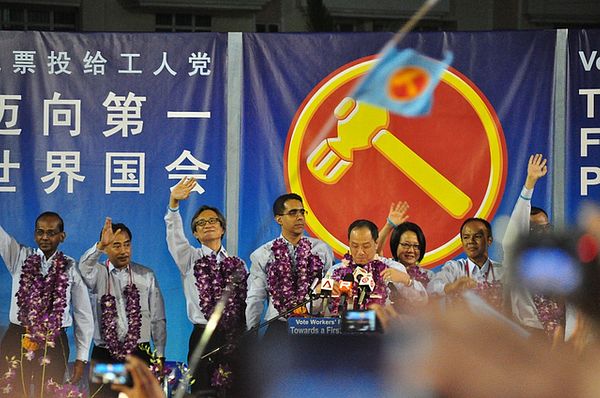movingstarvoices.org – Singapore, a city-state in Southeast Asia, has long been a subject of interest for political scientists and observers due to its unique political landscape. Despite being one of the wealthiest nations in the world, Singapore’s political system has often been described as a blend of democracy and authoritarianism. This article explores the current state of democracy in Singapore, the challenges it faces, and the future prospects of its political system.
The Current State of Democracy in Singapore
The Role of the People’s Action Party (PAP)
The People’s Action Party (PAP) has been the dominant political force in Singapore since its independence in 1965. The PAP’s long-standing rule is a testament to its ability to maintain political stability and economic prosperity. However, the party’s dominance has also raised questions about the extent of democracy in the country.
The PAP’s grip on power is maintained through a combination of factors, including a well-organized party structure, a strong economy, and a system of elections that favors the ruling party. The electoral system in Singapore, which includes single-member and group representation constituencies, often results in the PAP winning a majority of seats with a smaller percentage of the popular vote.
The Role of Opposition Parties
Despite the PAP’s dominance, opposition parties do exist and play a role in Singapore’s political landscape. The Workers’ Party, for instance, has been able to secure a significant number of seats in recent elections, although it remains a minority force3. The presence of opposition parties is seen as a form of democratic participation, even if their influence is limited.
Challenges to Democracy in Singapore
Economic Pressures and Political Adaptation
One of the significant challenges facing Singapore’s political system is the need to adapt to changing economic conditions. The PAP has been under pressure to address issues such as rising inequality and the cost of living, which have become increasingly important to voters1. The party’s ability to respond to these challenges will be crucial in maintaining its support base.
Soft Repression and Political Control
Singapore has been described as a “curious anomaly” in political science due to its status as the wealthiest non-democracy in history2. The country’s political system includes elements of “soft repression,” where the government uses legal and administrative means to control political opposition. This includes restrictions on freedom of speech and assembly, which limit the ability of opposition parties to campaign effectively.
The Aftermath of Lee Kuan Yew’s Era
The passing of Singapore’s founding father, Lee Kuan Yew, marked the end of an era and brought new challenges to the political landscape. The “post-Lee” era has seen a shift in political dynamics, with younger leaders taking the helm and facing the task of maintaining the PAP’s dominance while addressing new social and economic issues.
Future Prospects
Political Evolution and Reform
The future of Singapore’s political system will depend on its ability to evolve and adapt to changing circumstances. There are calls for political reform, including changes to the electoral system and greater protection of civil liberties. The PAP has shown some willingness to adapt, such as by allowing more political space for opposition parties and implementing measures to address social issues.
Geopolitical Challenges
Singapore also faces significant geopolitical challenges, particularly in the context of the growing tension between the United States and China. The country’s strategic position and economic interests make it vulnerable to the shifting dynamics of global power politics.
Conclusion
Singapore’s political landscape is a complex interplay of democracy and authoritarianism. While the country has made significant strides in economic development and social stability, it continues to grapple with the challenges of maintaining political legitimacy and addressing the evolving needs of its citizens. The future of Singapore’s political system will depend on its ability to balance these competing demands and adapt to the changing global environment.
By understanding the current state of democracy in Singapore, the challenges it faces, and the potential for future reforms, we can gain a deeper insight into the dynamics of this unique political system.
